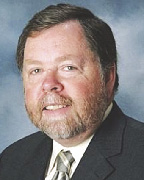Have you ever wondered what else Defined Benefit Plans, IRAs, or other retirement accounts could invest in besides stocks, bonds, and mutual funds?
The answer for increased diversification and potential risk-protection may be a self-directed retirement account, commonly referred to as a self-directed IRA, which allows investors to invest their tax-deferred dollars into alternatives to the stock market. Investments such as real estate, mortgages, or private equity are all acceptable for one of these accounts, which are administered by a special asset IRA custodian.
When individuals do make the move to stock market alternatives, they might find greater portfolio diversification, investments that they actually understand along with the potential for greater total returns. While participation in investments such as private equity (a medical device start-up, for example), and private notes and mortgages are also acceptable, let us focus on one highly tangible asset class for our example: real estate.
Investors, using self-directed IRAs, can put investment real estate inside of their retirement account without penalty or "cashing out." This might be direct ownership of a four-unit apartment building or participation in a Limited Partnership (LP) that invests in retail strip-malls with several retirement accounts as investors. All net income, appreciation and/or dividends stay in the account, tax-deferred, just like any other IRA investment.
The "rules of the road" are crucial when investing in this fashion. For example, the account cannot be used to "self-deal" or benefit the individual's immediate family in any way. Transactions need to be strictly investments, and cannot benefit the IRA owner (e.g., paying off a personal mortgage, funding the growth of a child's new start-up business or buying a second home in Aspen).
There is one important caveat to cover when looking at using IRA finds to invest into real estate that comes into play when the IRA uses leverage. A tax kicks in called Unrelated Business Income Tax (UBIT), and all investors should know about it if they plan to leverage their IRA asset with a non-recourse loan. Basically, the percentage of the investment that is leveraged is considered as if it is outside the IRA and therefore the corresponding percentage of your returns are exposed to the tax.
Often, returns are still greater after paying UBIT inside of an IRA vs. the taxes paid on returns with taxable funds. When examined closely, UBIT is typically not a "deal-killer" but the investor, or his tax professional, need to do the math to see how each investment will be affected by UBIT. Many investors will do an 'Inside the IRA v. Outside the IRA' comparison to see the true picture.
Investors need not "go-it-alone." Investors and advisors should look for a regulated custodian that has the knowledge and expertise to assist new self-directed investors to become familiar with the process. Education is the foundation to success, and some custodians offer comprehensive education at no-cost through their websites to help investors make informed decisions.
Reach out to your financial advisor, CPA, or estate planner about ways to unlock retirement dollars from the stock market. Given the lack of capital available in today's economy, incorporating the concept of self-directed IRA investing into your marketing approach may result in additional sales, as investors are made aware of funds that are readily available for real estate investing in their retirement accounts. This not only helps you grow your business, but investing in alternative investments may help your clients maximize the benefits and returns available to them and provide a whole new dimension to their tax, investment, and estate planning.
If nothing more, the recent banking and financial crisis has reminded all investors that seeking greater portfolio diversification and "investments-that-you-understand" are important to ensuring the future that they envision.
Michael Scott is vice president and director of business development for PENSCO Trust Co., Portsmouth, Me.
Tags:








